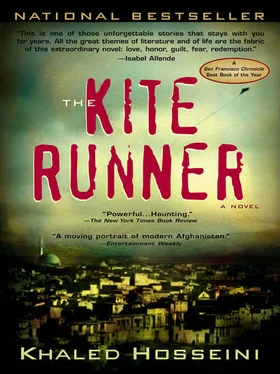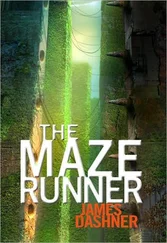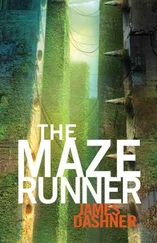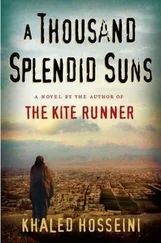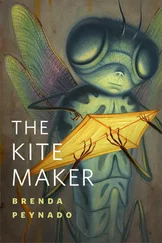The kite-fighting tournament was an old winter tradition in Afghanistan. It started early in the morning on the day of the contest and didn’t end until only the winning kite flew in the sky – I remember one year the tournament outlasted daylight. People gathered on sidewalks and roofs to cheer for their kids. The streets filled with kite fighters, jerking and tugging on their lines, squinting up to the sky, trying to gain position to cut the opponent’s line. Every kite fighter had an assistant – in my case, Hassan – who held the spool and fed the line.
One time, a bratty Hindi kid whose family had recently moved into the neighborhood told us that in his hometown, kite fighting had strict rules and regulations. “You have to play in a boxed area and you have to stand at a right angle to the wind,” he said proudly. “And you can’t use aluminum to make your glass string.”
Hassan and I looked at each other. Cracked up. The Hindi kid would soon learn what the British learned earlier in the century, and what the Russians would eventually learn by the late 1980s: that Afghans are an independent people. Afghans cherish custom but abhor rules. And so it was with kite fighting. The rules were simple: No rules. Fly your kite. Cut the opponents. Good luck.
Except that wasn’t all. The real fun began when a kite was cut. That was where the kite runners came in, those kids who chased the windblown kite drifting through the neighborhoods until it came spiraling down in a field, dropping in someone’s yard, on a tree, or a rooftop. The chase got pretty fierce; hordes of kite runners swarmed the streets, shoved past each other like those people from Spain I’d read about once, the ones who ran from the bulls. One year a neighborhood kid climbed a pine tree for a kite. A branch snapped under his weight and he fell thirty feet. Broke his back and never walked again. But he fell with the kite still in his hands. And when a kite runner had his hands on a kite, no one could take it from him. That wasn’t a rule. That was custom.
For kite runners, the most coveted prize was the last fallen kite of a winter tournament. It was a trophy of honor, something to be displayed on a mantle for guests to admire. When the sky cleared of kites and only the final two remained, every kite runner readied himself for the chance to land this prize. He positioned himself at a spot that he thought would give him a head start. Tense muscles readied themselves to uncoil. Necks craned. Eyes crinkled. Fights broke out. And when the last kite was cut, all hell broke loose.
Over the years, I had seen a lot of guys run kites. But Hassan was by far the greatest kite runner I’d ever seen. It was downright eerie the way he always got to the spot the kite would land before the kite did, as if he had some sort of inner compass.
I remember one overcast winter day, Hassan and I were running a kite. I was chasing him through neighborhoods, hopping gutters, weaving through narrow streets. I was a year older than him, but Hassan ran faster than I did, and I was falling behind.
“Hassan! Wait!” I yelled, my breathing hot and ragged.
He whirled around, motioned with his hand. “This way!” he called before dashing around another corner. I looked up, saw that the direction we were running was opposite to the one the kite was drifting.
“We’re losing it! We’re going the wrong way!” I cried out.
“Trust me!” I heard him call up ahead. I reached the corner and saw Hassan bolting along, his head down, not even looking at the sky, sweat soaking through the back of his shirt. I tripped over a rock and fell – I wasn’t just slower than Hassan but clumsier too; I’d always envied his natural athleticism. When I staggered to my feet, I caught a glimpse of Hassan disappearing around another street corner. I hobbled after him, spikes of pain battering my scraped knees.
I saw we had ended up on a rutted dirt road near Isteqlal Middle School. There was a field on one side where lettuce grew in the summer, and a row of sour cherry trees on the other. I found Hassan sitting cross-legged at the foot of one of the trees, eating from a fistful of dried mulberries.
“What are we doing here?” I panted, my stomach roiling with nausea.
He smiled. “Sit with me, Amir agha.”
I dropped next to him, lay on a thin patch of snow, wheezing. “You’re wasting our time. It was going the other way, didn’t you see?”
Hassan popped a mulberry in his mouth. “It’s coming,” he said. I could hardly breathe and he didn’t even sound tired.
“How do you know?” I said.
“I know.”
“How can you know ?”
He turned to me. A few sweat beads rolled from his bald scalp. “Would I ever lie to you, Amir agha?”
Suddenly I decided to toy with him a little. “I don’t know. Would you?”
“I’d sooner eat dirt,” he said with a look of indignation.
“Really? You’d do that?”
He threw me a puzzled look. “Do what?”
“Eat dirt if I told you to,” I said. I knew I was being cruel, like when I’d taunt him if he didn’t know some big word. But there was something fascinating – albeit in a sick way – about teasing Hassan. Kind of like when we used to play insect torture. Except now, he was the ant and I was holding the magnifying glass.
His eyes searched my face for a long time. We sat there, two boys under a sour cherry tree, suddenly looking, really looking, at each other. That’s when it happened again: Hassan’s face changed. Maybe not changed , not really, but suddenly I had the feeling I was looking at two faces, the one I knew, the one that was my first memory, and another, a second face, this one lurking just beneath the surface. I’d seen it happen before – it always shook me up a little. It just appeared, this other face, for a fraction of a moment, long enough to leave me with the unsettling feeling that maybe I’d seen it someplace before. Then Hassan blinked and it was just him again. Just Hassan.
“If you asked, I would,” he finally said, looking right at me. I dropped my eyes. To this day, I find it hard to gaze directly at people like Hassan, people who mean every word they say.
“But I wonder,” he added. “Would you ever ask me to do such a thing, Amir agha?” And, just like that, he had thrown at me his own little test. If I was going to toy with him and challenge his loyalty, then he’d toy with me, test my integrity.
I wished I hadn’t started this conversation. I forced a smile. “Don’t be stupid, Hassan. You know I wouldn’t.”
Hassan returned the smile. Except his didn’t look forced. “I know,” he said. And that’s the thing about people who mean everything they say. They think everyone else does too.
“Here it comes,” Hassan said, pointing to the sky. He rose to his feet and walked a few paces to his left. I looked up, saw the kite plummeting toward us. I heard footfalls, shouts, an approaching melee of kite runners. But they were wasting their time. Because Hassan stood with his arms wide open, smiling, waiting for the kite. And may God – if He exists, that is – strike me blind if the kite didn’t just drop into his outstretched arms.
IN THE WINTER OF 1975, I saw Hassan run a kite for the last time.
Usually, each neighborhood held its own competition. But that year, the tournament was going to be held in my neighborhood, Wazir Akbar Khan, and several other districts – Karteh-Char, Karteh-Parwan, Mekro-Rayan, and Koteh-Sangi – had been invited. You could hardly go anywhere without hearing talk of the upcoming tournament. Word had it this was going to be the biggest tournament in twenty-five years.
One night that winter, with the big contest only four days away, Baba and I sat in his study in overstuffed leather chairs by the glow of the fireplace. We were sipping tea, talking. Ali had served dinner earlier – potatoes and curried cauliflower over rice – and had retired for the night with Hassan. Baba was fattening his pipe and I was asking him to tell the story about the winter a pack of wolves had descended from the mountains in Herat and forced everyone to stay indoors for a week, when he lit a match and said, casually, “I think maybe you’ll win the tournament this year. What do you think?”
Читать дальше
